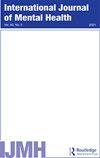“They are not satisfied until they see our blood”: Syndemic HIV risks for trans women in urban Haiti
IF 1.7
Q3 PSYCHOLOGY, CLINICAL
引用次数: 2
Abstract
Abstract The contribution of gender identity, neighborhood characteristics, contextual norms, and socio-political factors to the biopsychosocial health of non-heteronormative persons in low- and middle-income countries (LMICs) is understudied. Using syndemic theory, we conducted two focus groups (FGs) of 16 non-heteronormative individuals in Haiti's urban Cité Soleil neighborhood. Eight individuals participated in each FG. ATLAS.ti facilitated thematic content analysis of transcripts. Results indicate that disparity conditions in Cité Soleil (extreme poverty, gang violence, easy access of weapons by criminals, lack of law enforcement, and a 3.6% Human Immunodeficiency Virus [HIV] rate) facilitate a syndemic of substance abuse and non-partner sexual violence. These interact adversely with gender expression, transphobia, transmisogyny, cissexism, lack of confidential HIV testing, and hostilities from religious groups to increase participants' risks of coercive non-partner sexual violence by groups of inebriated men. Injuries from sexual violence, limited access to confidential HIV testing, and inaccurate HIV knowledge heighten HIV risk and anxiety. Haiti’s negative human rights record, 2.2% HIV prevalence, and cultural norms that devalue women are syndemic pathways that perpetuate or worsen disparity conditions and health risks, particularly for trans women. It is a moral, ethical, public health, and social justice mandate to address HIV prevention and mental health promotion for Haitian trans women.“他们直到看到我们的血液才满意”:海地城市跨性别女性感染艾滋病毒的风险
摘要性别认同、邻里特征、情境规范和社会政治因素对低收入和中等收入国家(LMIC)非异质规范人群生物心理社会健康的贡献研究不足。使用综合征理论,我们在海地城市太阳城社区进行了两个由16名非异质性个体组成的焦点小组(FGs)。每个FG.ATLAS.ti促进了转录本的主题内容分析,共有8人参与。结果表明,太阳城的差异条件(极端贫困、帮派暴力、罪犯容易获得武器、缺乏执法以及3.6%的人类免疫缺陷病毒感染率)助长了药物滥用和非伴侣性暴力的综合征。这些因素与性别表达、跨性别恐惧症、跨性别厌女症、自恋、缺乏保密的艾滋病毒检测以及宗教团体的敌对行动产生了不利影响,增加了参与者遭受醉酒男性群体强迫性非伴侣性暴力的风险。性暴力造成的伤害、获得保密的艾滋病毒检测的机会有限以及对艾滋病毒知识的不准确增加了感染艾滋病毒的风险和焦虑。海地的负面人权记录、2.2%的艾滋病毒感染率和贬低妇女的文化规范是使差异状况和健康风险长期存在或恶化的综合征途径,尤其是对跨性别妇女来说。这是一项道德、伦理、公共卫生和社会正义任务,旨在解决海地跨性别妇女的艾滋病毒预防和心理健康促进问题。
本文章由计算机程序翻译,如有差异,请以英文原文为准。
求助全文
约1分钟内获得全文
求助全文
来源期刊

INTERNATIONAL JOURNAL OF MENTAL HEALTH
PSYCHOLOGY, CLINICAL-
CiteScore
3.80
自引率
20.00%
发文量
32
期刊介绍:
The official journal of the World Association for Psychosocial Rehabilitation, the International Journal of Mental Health features in-depth articles on research, clinical practice, and the organization and delivery of mental health services around the world. Covering both developed and developing countries, it provides vital information on important new ideas and trends in community mental health, social psychiatry, psychiatric epidemiology, prevention, treatment, and psychosocial rehabilitation.
 求助内容:
求助内容: 应助结果提醒方式:
应助结果提醒方式:


